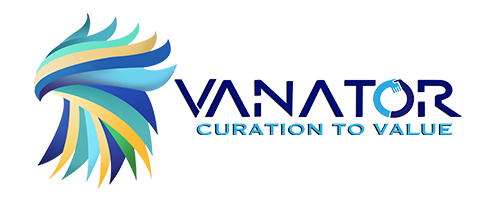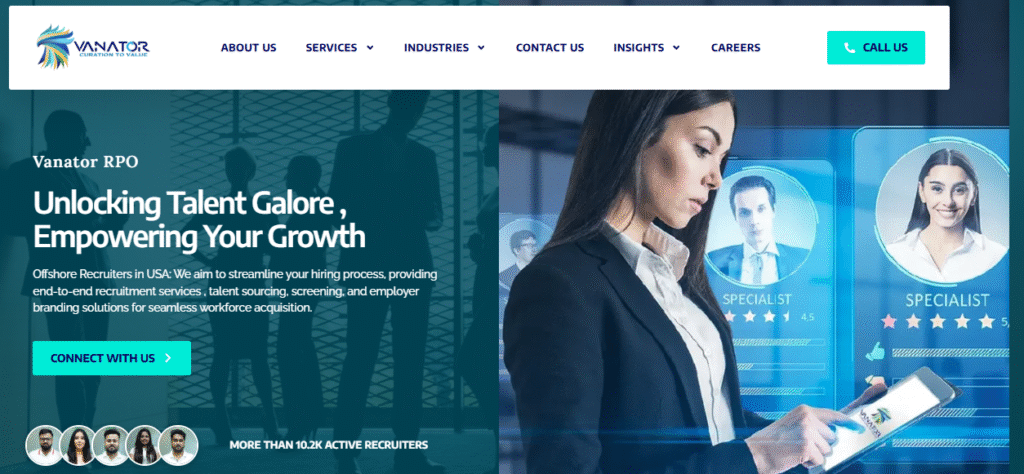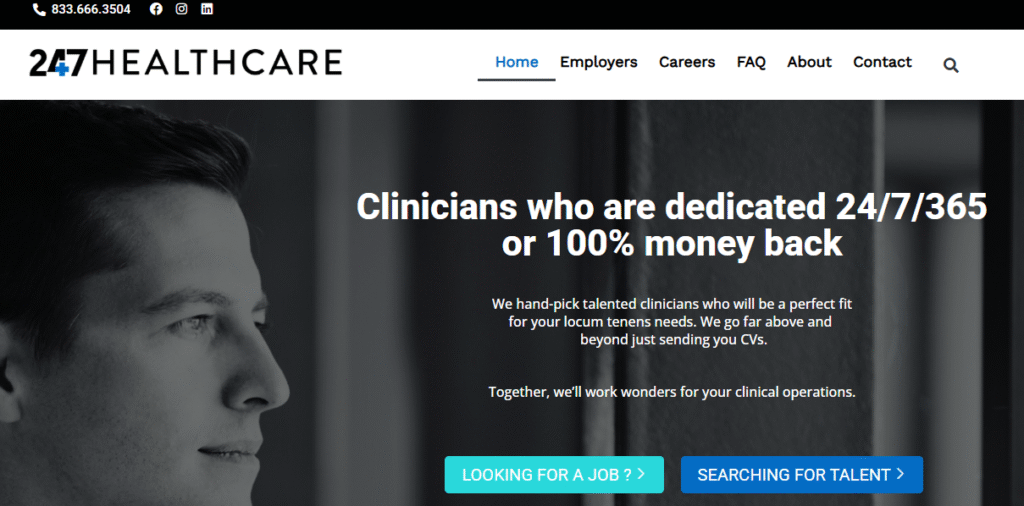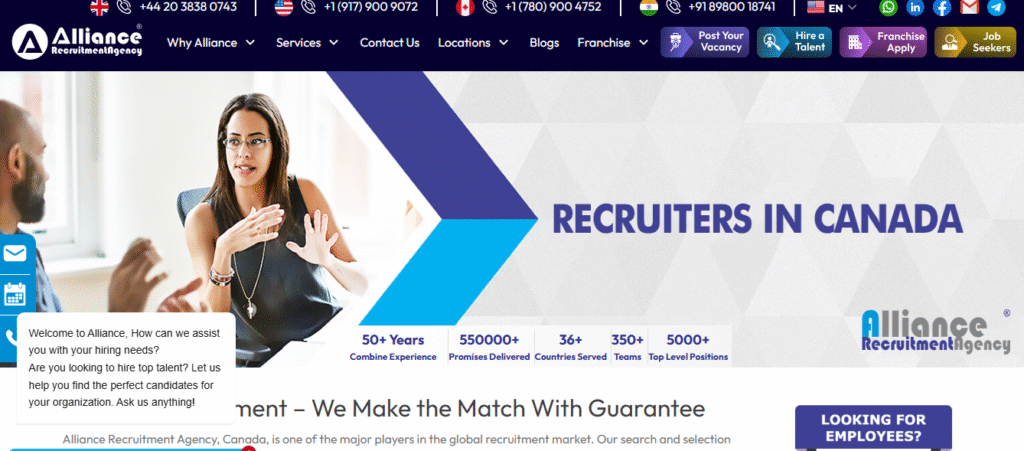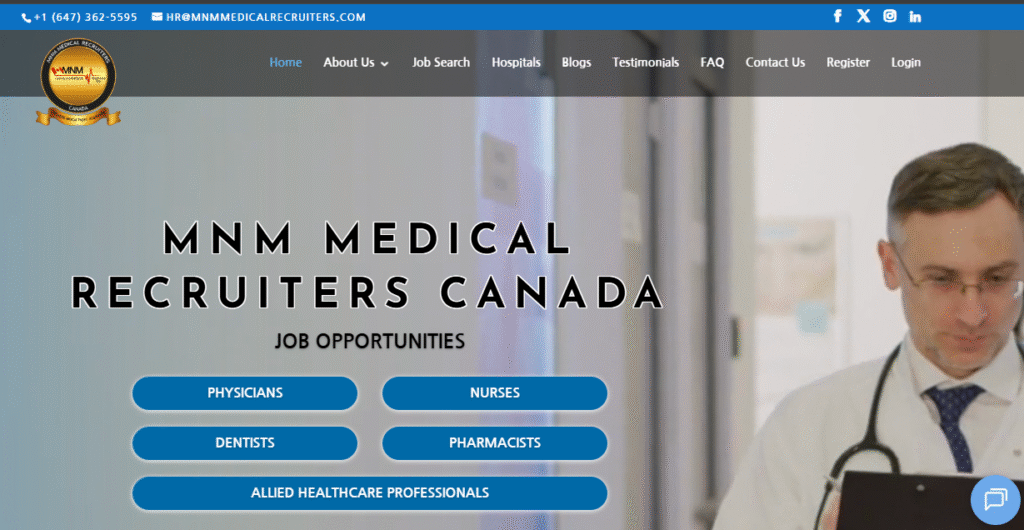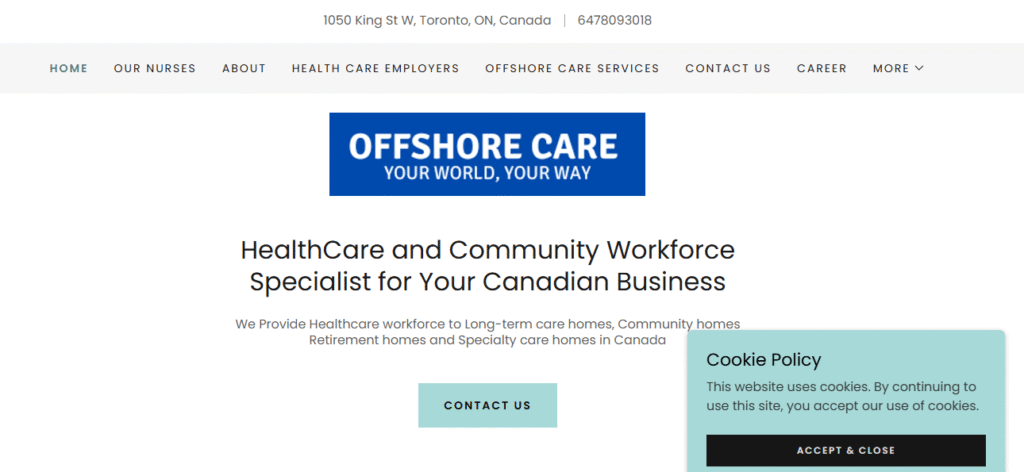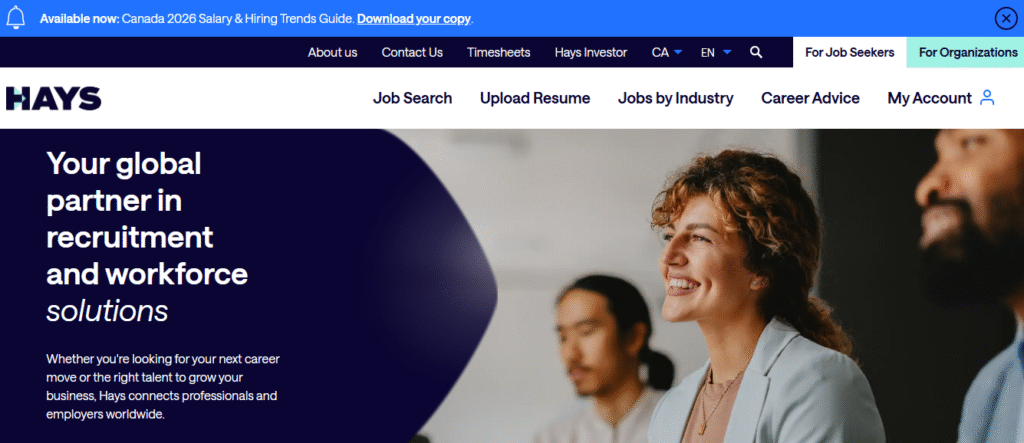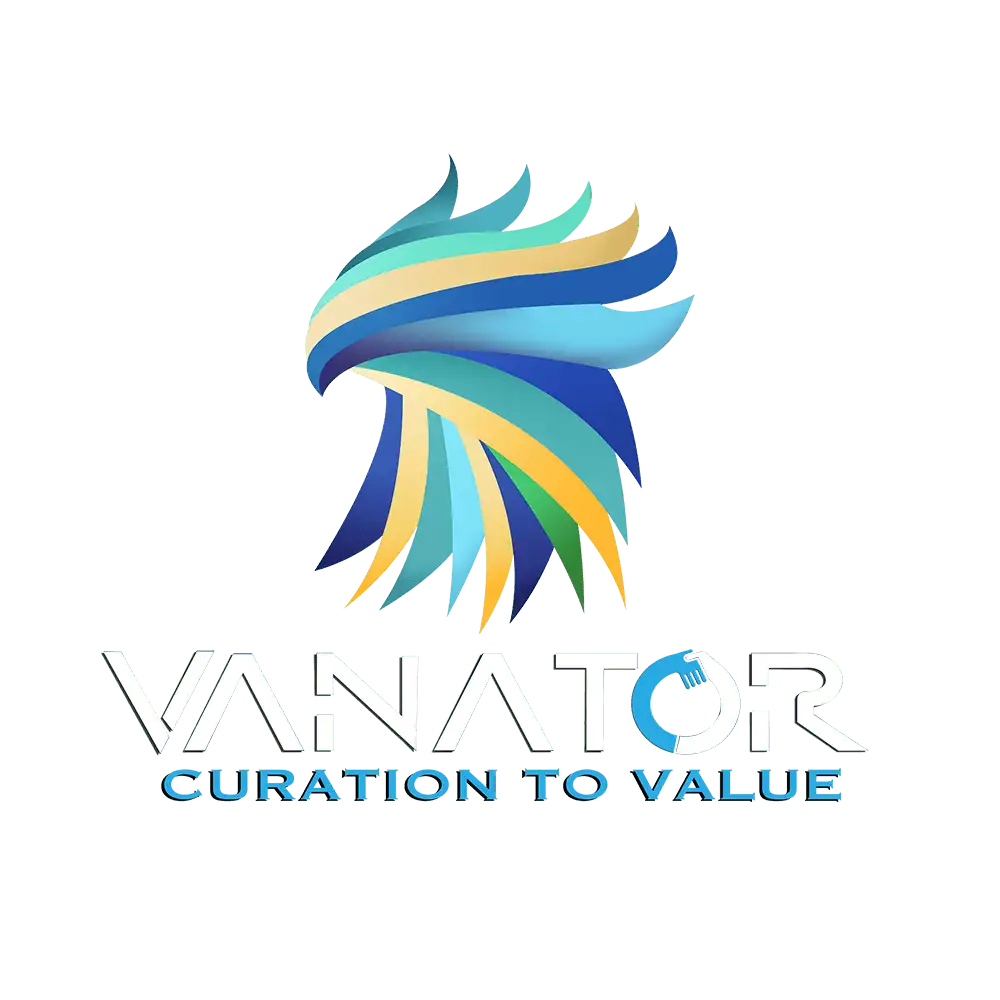Explore Recruitment Hidden facts 2025 in this guide revealing AI bias, passive talent strategies, employer ghosting, and the role of predictive analytics in transforming modern hiring on a global scale.
- Home
- Blogs
- Healthcare Offshore Recruitment in Canada: The Complete Guide to Finding Top Medical Talent Globally
Healthcare Offshore Recruitment in Canada: The Complete Guide to Finding Top Medical Talent Globally
Explore Recruitment Hidden facts 2025 in this guide revealing AI bias, passive talent strategies, employer ghosting, and the role of predictive analytics in transforming modern hiring on a global scale.
Key Takeaways:
The Current State of Healthcare Recruitment in Canada
Why Offshore Recruitment is Superior to Other Recruitment Methods
How Healthcare Offshore Recruitment Works: The Complete Process
Selecting the Right Healthcare Offshore Recruitment Partner
Healthcare Offshore Recruitment: Success Stories from Canadian Organizations
Addressing Concerns About Offshore Healthcare Recruitment
The Future of Healthcare Offshore Recruitment in Canada
Making the Decision: Is Healthcare Offshore Recruitment Right for Your Organization?
Conclusion: Offshore Recruitment as Canada’s Healthcare Solution

Introduction
Canada’s healthcare system is facing an unprecedented staffing crisis. With 78,600 unfilled positions in the third quarter of 2024 and over 32,000 nursing vacancies alone, Canadian healthcare facilities are struggling to maintain adequate patient care standards. Hospitals are closing emergency departments, surgical wait times are skyrocketing, and existing staff are burning out under enormous pressure.
For healthcare organizations across Canada—from small rural clinics to large metropolitan hospital networks—the challenge is clear: where will the next generation of qualified nurses, doctors, medical technologists, and allied health professionals come from?
The answer is increasingly turning international. Healthcare offshore recruitment represents a strategic solution that allows Canadian healthcare facilities to tap into a global talent pool while managing costs and accelerating their hiring timelines. This comprehensive guide explores how offshore recruitment is transforming healthcare staffing in Canada and why it has become a critical strategy for organizations looking to overcome this staffing crisis.
Understanding the Healthcare Staffing Crisis in Canada

The Scope of the Problem
The healthcare workforce shortage in Canada has reached critical levels. Canada needs approximately 23,000 family doctors—a 49% increase from the current number. Beyond physicians, the country faces significant gaps across multiple disciplines:
- 28,000 more registered nurses needed
- 14,000 more licensed practical nurses needed
- 2,700 more nurse practitioners needed
- Thousands more allied health professionals, including occupational therapists, physiotherapists, and pharmacists
These aren’t just statistics—they represent real consequences for patients. Emergency room closures, delayed surgeries, and reduced access to primary care have become routine occurrences in communities across Canada.
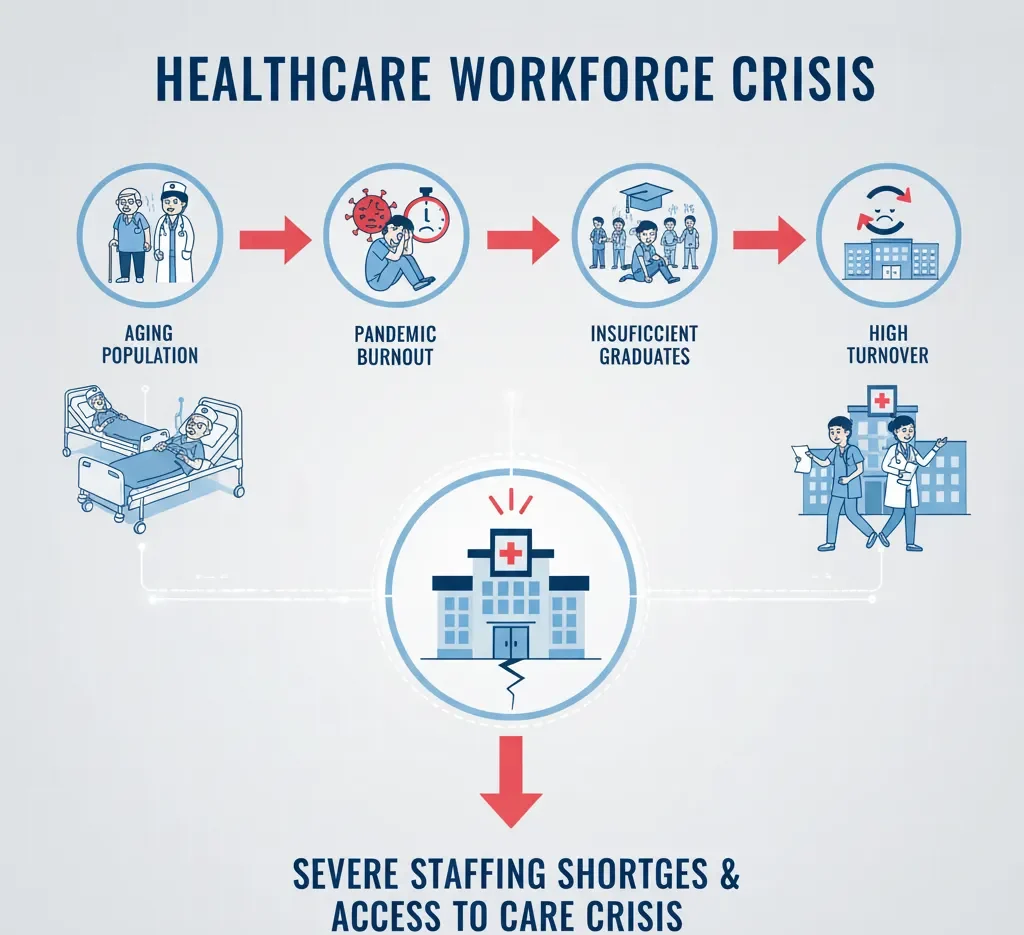
Root Causes of Canada’s Healthcare Shortage
Several interconnected factors have created this staffing emergency:
1. An Aging Population
By 2030, one in four Canadians will be over 65 years old. This demographic shift dramatically increases demand for healthcare services at the exact moment when many experienced healthcare workers are reaching retirement age.
2. Post-Pandemic Burnout
The COVID-19 pandemic accelerated burnout among healthcare professionals. In 2023, 40% of nurses were planning to leave their jobs or the profession entirely. The mental and physical toll of pandemic work intensified existing workplace pressures, driving many experienced professionals out of the field.
3. Insufficient Domestic Workforce Production
Canadian colleges and universities are not producing healthcare graduates at a rate sufficient to meet demand. This gap is particularly acute in rural and remote provinces like Nova Scotia, Manitoba, and British Columbia.
4. High Turnover Rates
Nursing vacancies often remain open for extended periods. Statistics show that nearly half of RN/RPN vacancies stay open for 90 days or more, reflecting the difficulty employers face in finding qualified candidates locally.
5. Limited Local Talent Pool
In many regions, the local job market simply doesn’t have enough qualified candidates to fill available positions, regardless of salary offerings.

What is Healthcare Offshore Recruitment?
Definition and Scope
Healthcare offshore recruitment is the process of sourcing, screening, and hiring qualified healthcare professionals from outside Canada to fill staffing gaps within Canadian healthcare facilities. These professionals may come from countries throughout Asia, Europe, Africa, the Middle East, or other regions.
Offshore healthcare recruitment differs from simply posting a job internationally. Professional offshore recruitment agencies specialize in:
- Candidate identification and screening across global talent networks
- Credential verification and validation of international qualifications
- Language proficiency assessment (particularly English or French)
- Licensure and registration support to help candidates meet Canadian regulatory requirements
- Immigration paperwork management and coordination with Canadian immigration authorities
- Relocation assistance and support during the transition to Canada
- Onboarding and integration to ensure successful adaptation to Canadian healthcare environments
Key Difference: Offshore vs. Onshore Recruitment
To understand why healthcare organizations are increasingly turning to offshore recruitment, it’s essential to understand how it differs from traditional onshore recruitment methods:
Factor | Onshore Recruitment | Offshore Recruitment |
Cost | High (30-70% more expensive) | Low (30-70% cost savings) |
Talent Pool | Limited to local/regional candidates | Access to global talent pool |
Time to Hire | Lengthy (often 3-6 months) | Accelerated (often 4-8 weeks) |
Specialization | Limited expertise in healthcare | Deep healthcare industry specialization |
Scalability | Difficult to rapidly scale | Easy to scale up or down |
Compliance | Straightforward local requirements | Complex international regulations |
Time Zone | Same time zone alignment | 24/7 productivity potential |
The Current State of Healthcare Recruitment in Canada
Top Healthcare Recruiting Firms in Canada
Several established recruitment agencies have built strong reputations for healthcare staffing in Canada:
Vanator RPO has become a leading player in healthcare offshore recruitment, completing over 100 medical recruitments for Canadian healthcare organizations. Their recruitment specialists focus on positions ranging from customer service and patient registration to medical diagnostic imaging and PET/CT administration, as well as senior-level clinical roles.
24/7 Hire brings an innovative, data-driven approach to healthcare recruitment across Canada. Their expertise spans candidate sourcing, screening, and comprehensive onboarding, making them a trusted partner for healthcare facilities seeking to scale their workforces efficiently.
Alliance Recruitment Agency operates globally with significant Canadian presence, specializing in healthcare alongside IT and engineering. With a 48-hour time-to-interview guarantee and large international talent pools, they’ve become known for reliable, fast recruitment solutions.
MNM Medical Recruiters specializes in identifying junior to senior-level healthcare professionals. Their recruiters maintain deep understanding of the Canadian medical market and have developed strong networks for sourcing exceptional candidates.
Offshore Care specifically focuses on international healthcare recruitment, maintaining offices in Canada, the Middle East, and India. They provide turnkey recruitment solutions covering everything from candidate sourcing and credentialing to immigration management and relocation coordination.
Hays Recruitment Canada and Robert Half Canada bring extensive experience in professional staffing, though with less specific focus on healthcare than specialized agencies.

Why Offshore Recruitment is Superior to Other Recruitment Methods
1. Dramatic Cost Savings
The most compelling reason organizations choose healthcare offshore recruitment: cost efficiency.
When you hire healthcare workers from countries with lower wage scales, your organization can achieve 30-70% cost savings on labor expenses compared to hiring locally. These aren’t minor reductions—for a large hospital network needing to fill 50 nursing positions, this could mean savings of hundreds of thousands of dollars annually.
These savings translate directly into additional resources for patient care, facility improvements, or other critical healthcare investments. Organizations that once spent thousands of dollars annually on building and maintaining HR teams can redirect those resources to clinical operations.
2. Access to a Global Talent Pool
The local job market has limitations. If you need specialized professionals—cardiac surgeons, nurse anesthetists, critical care specialists—or if you need to hire dozens of nurses simultaneously, the local Canadian talent market may not have sufficient candidates.
Offshore recruitment agencies maintain extensive networks spanning multiple continents. This global reach means:
- Immediate access to pre-screened, qualified healthcare professionals
- Specialized expertise available on demand (niche surgical specialties, rare diagnostic skills, )
- Multilingual capabilities for serving diverse patient populations
- Cultural diversity that enriches your healthcare team
For a healthcare facility struggling to find five experienced nurses in their region, an offshore agency can often identify qualified candidates within weeks rather than months.
3. Accelerated Hiring Timelines
Time-to-hire represents a critical operational metric in healthcare. Every day a position sits vacant, your remaining staff work harder, burnout accelerates, and patient care quality suffers.
Offshore recruitment agencies have streamlined processes and pre-vetted candidate networks that dramatically reduce hiring timelines. Rather than starting from zero—posting positions, advertising broadly, and waiting for applications to arrive—offshore recruiters can present qualified candidates within weeks rather than months.
Real-world example: A mid-sized Canadian hospital needed to fill 10 nursing positions within two months due to unexpected staff departures. Working with an offshore recruitment agency, they identified and onboarded seven qualified nurses within six weeks, compared to the estimated five- month timeline they were initially facing with traditional recruitment methods.
4. Enhanced Recruitment Expertise
Specialized offshore recruitment agencies don’t just have access to candidates—they have deep industry expertise. Their recruiters:
- Understand Canadian healthcare regulatory requirements and can identify candidates who meet or can quickly meet licensing standards
- Know global healthcare markets and identify candidates from countries with comparable healthcare standards
- Have specialized knowledge of niche healthcare roles and the qualifications candidates need
- Understand immigration processes specific to Canadian healthcare worker visas and pathways
- Maintain relationships with healthcare training institutions worldwide
This specialized expertise means your organization gets more appropriate matches—candidates whose qualifications genuinely align with your facility’s needs rather than generic applications from under-qualified candidates.
5. Scalability and Flexibility
Healthcare staffing needs fluctuate. A seasonal surgical facility may need more staff during peak months. A facility experiencing rapid growth needs to scale hiring up quickly. A declining patient volume may require temporary workforce reductions.
Offshore recruitment agencies provide flexibility that in-house recruiting cannot:
- Quickly scale up hiring when demand spikes
- Scale down when volumes decrease, avoiding layoffs and retaining relationships
- Handle multiple simultaneous placements that would overwhelm internal recruiting teams
- Manage variable demand through contract positions, temporary placements, or permanent hires
- Reduce fixed HR overhead by outsourcing recruitment functions
This flexibility is particularly valuable for healthcare organizations that face seasonal variations in patient volume or those in growth phases where hiring needs change rapidly.
6. 24/7 Productivity and Global Coverage
When your recruitment happens across multiple time zones, the hiring process continues around the clock. While your Canadian recruitment team sleeps, offshore recruiters are actively:
- Screening candidates in their time zones
- Conducting initial interviews
- Verifying credentials
- Coordinating with immigration authorities
- Managing pre-onboarding logistics
This round-the-clock activity translates into faster hiring and more efficient processes. What might take three weeks with a local-only recruitment approach might take only 10 days with offshore resources working in parallel across time zones.
7. Reduced Compliance Complexity
While offshore recruitment involves international complexity, professional offshore recruitment agencies specialize in managing this complexity. They handle:
- Immigration paperwork and coordination with Canadian immigration authorities
- Credential recognition and verification of international qualifications
- Licensing and registration support through Canadian provincial medical bodies
- Tax and payroll compliance for international hires
- Employment contract creation compliant with Canadian labor law
- Insurance and benefits administration
Rather than your HR team struggling through unfamiliar international hiring regulations, offshore agencies bring expertise that actually reduces compliance risk by ensuring proper procedures are followed.
8. Improved Diversity and Innovation
A diverse healthcare workforce benefits patients and organizational performance. Offshore recruitment naturally increases team diversity by bringing:
- Cultural perspectives that improve patient care for diverse communities
- Different healthcare training approaches that introduce innovation
- Multilingual capabilities for serving immigrant and international communities
- New problem-solving approaches informed by different healthcare systems
- Enhanced reputation as an inclusive, globally-oriented organization
Research demonstrates that diverse teams generate more innovative solutions and provide better patient care across diverse populations.

How Healthcare Offshore Recruitment Works: The Complete Process
Step 1: Initial Assessment and Planning
The first step involves a detailed conversation between your healthcare facility and the offshore recruitment agency. This assessment determines:
- Positions to fill and specific role requirements
- Urgency timeline and when positions need to be filled
- Candidate qualifications and must-have skills/credentials
- Budget parameters and cost-per-placement targets
- Cultural fit and organizational values alignment
- Specialization needs and technical requirements
Step 2: Global Candidate Sourcing
Once requirements are defined, offshore recruitment agencies leverage their global networks to identify potential candidates. This involves:
- Database searches across their candidate networks in multiple countries
- Targeted recruitment from specific healthcare institutions or training programs
- Professional networking within healthcare communities worldwide
- Passive candidate outreach to professionals not actively job-seeking
Quality offshore agencies maintain vetted candidate networks built over years of operations. They don’t cold-source; they work from existing relationships with pre-qualified professionals.
Step 3: Screening and Qualification Verification
Identified candidates undergo rigorous screening including:
- Credential verification confirming educational qualifications and certifications
- Experience validation through reference checks and employment history verification
- Language proficiency testing (typically IELTS or TOEFL for English-language positions)
- Background checks including criminal history where legally permitted
- Technical skills assessment through competency testing relevant to the position
- Initial interviews to assess communication skills and cultural fit
This comprehensive screening ensures only genuinely qualified candidates advance. Offshore recruitment agencies’ reputations depend on placing qualified professionals who succeed—not on placing the most candidates.
Step 4: Candidate Presentation and Selection
Qualified candidates are presented to your healthcare facility with complete documentation:
- Professional profiles and CVs
- Verification of credentials and licenses
- Language proficiency scores
- Background check results
- Interview recommendations and assessments
- Salary expectations and start date availability
Your organization then interviews final candidates (often via video conference) and selects candidates to move forward.
Step 5: Immigration and Licensing Support
Once candidates are selected, the offshore agency coordinates:
- Work permit applications and documentation gathering
- Provincial medical licensing requirements and examinations (where needed)
- Nursing registration with provincial regulatory bodies
- Credentialing for hospital/facility privileges and privileges
- Government approvals and immigration processing
This phase can take weeks to months depending on provincial requirements and individual candidate circumstances. Offshore agencies navigate these complex processes so your HR team doesn’t have to.
Step 6: Relocation and Onboarding
The final phase includes:
- Housing assistance and relocation coordination
- Orientation programs introducing candidates to Canadian healthcare environment
- Mentorship assignment pairing new hires with experienced staff
- Language and cultural training supporting successful integration
- Credentials exchange and licensing completion
- Performance monitoring during initial employment periods
Quality offshore agencies recognize that candidate success depends on successful integration into your organization and Canadian healthcare environment.

Selecting the Right Healthcare Offshore Recruitment Partner
Key Evaluation Criteria
Not all offshore recruitment agencies provide equal value. When evaluating potential partners, assess:
1. Healthcare Industry Specialization:
Generic recruitment agencies lack healthcare-specific expertise. Look for agencies with:
- Dedicated healthcare recruitment divisions
- Recruiters with healthcare industry background
- Understanding of specific healthcare specialties
- Knowledge of Canadian healthcare regulatory requirements
2. Proven Track Record Evaluate their credentials:
- Years in business (5+ years is preferable)
- Number of successful healthcare placements
- Client testimonials and case studies
- References from Canadian healthcare organizations
- Retention rates (percentage of placed candidates who stay 12+ months)
3. Global Network and Resources Superior offshore agencies maintain:
- Presence in multiple source countries (India, Philippines, Middle East, Africa, Europe, )
- Relationships with major healthcare institutions and training programs
- Multi-language recruitment capabilities
- 24/7 operations across time zones
4. Compliance and Immigration Expertise Verify their knowledge of:
- Canadian immigration law and work permit processes
- Provincial licensing requirements (varies by province)
- Credential recognition procedures
- Employment standards and labor law compliance
5. Quality Assurance and Vetting Processes Ask about:
- Candidate screening methodologies
- Background check processes
- Credential verification procedures
- Language proficiency assessment methods
- Technical skills testing approaches
6. Client Support and Communication Evaluate their ability to:
- Provide regular status updates during recruitment process
- Respond quickly to your inquiries and concerns
- Adapt to your timeline and urgency requirements
- Provide post-placement support and issue resolution
- Maintain transparent communication about costs and timelines
7. Transparent Pricing Structure Quality agencies provide:
- Clear, itemized cost breakdowns
- No hidden fees or surprise expenses
- Performance-based pricing (lower costs if placements don’t work out)
- Alignment of financial incentives (they succeed when you succeed)

Healthcare Offshore Recruitment: Success Stories from Canadian Organizations
Example 1: Large Metropolitan Hospital System
A Toronto-based hospital network with five facilities needed to increase nursing staff by 50 nurses within six months to accommodate new surgical services expansion. Local recruitment yielded only 12 qualified candidates after three months and $150,000 in recruitment spending.
Partnering with an offshore recruitment agency, they identified 45 qualified RNs within eight weeks. After immigration processing and onboarding, they successfully onboarded 38 nurses within the planned timeline. Total cost was approximately $200,000 for the entire process—actually less than local recruitment alone for comparable results.
Outcome: Service expansion launched on schedule. New nurses rated highly in performance reviews. Retention after 18 months exceeded 90%.
Example 2: Rural Regional Medical Center
A small rural Canadian medical center in Manitoba faced a critical shortage of diagnostic medical technologists. A single advertised position had generated just two applications over two months— neither qualified to the required standard.
An offshore recruitment agency identified three qualified candidates within two weeks. After immigration processing, two were hired and successfully integrated. Both remain employed two years later and mentor newer staff.
Outcome: Critical service gaps filled. Staff retention improved due to reduced burnout from understaffing. Patient wait times for diagnostic services decreased significantly.
Example 3: Long-Term Care Facility
A British Columbia long-term care facility needed 30 care aids and 8 nurses to support their aging resident population. Budget constraints had prevented adequate hiring despite growing resident census.
Partnering with an offshore agency, they identified qualified candidates from Southeast Asia at significantly lower cost structures than Canadian-trained alternatives. The facility successfully onboarded 28 care aids and 7 nurses over four months.
Outcome: Resident care quality improved noticeably. Staff-to-resident ratios became sustainable. Operating costs decreased despite higher wages than in source countries—still lower than local recruitment and staffing alternatives. Residents’ families appreciated the cultural diversity of staff.

Addressing Concerns About Offshore Healthcare Recruitment
Concern 1: Quality and Competency
Common worry: Are offshore healthcare professionals as qualified and competent as Canadian- trained professionals?
The reality: Quality offshore recruitment agencies screen candidates thoroughly. They verify educational credentials from institutions in their source countries, conduct skills assessments, and often require internationally-recognized certifications. Candidates placed through reputable agencies have typically completed rigorous training in their home countries—often with more hands-on clinical experience than newly-graduated Canadian nurses.
That said, success depends on rigorous vetting. Choose agencies with comprehensive verification processes and don’t simply accept candidates without thorough credential review.
Concern 2: Language Proficiency and Communication
Common worry: Will language barriers interfere with patient safety and team communication?
The reality: Language proficiency is a critical screening factor. Professional offshore agencies assess English or French proficiency (depending on province) before forwarding candidates. Many candidates from Commonwealth countries (India, Philippines, Australia, etc.) have English as a working language. Structured orientation programs including language training further support successful integration.
Language barriers do exist and require management—but this is true for any international hire, and professional agencies and facilities manage this through proper training and support.
Concern 3: Cultural Integration and Retention
Common worry: Will offshore-hired healthcare professionals stay in Canada or leave after a few years, requiring constant replacement?
The reality: Retention data shows that healthcare professionals hired through offshore recruitment often have longer tenure than anticipated. Many make the decision to immigrate to Canada specifically because they’ve secured healthcare employment—providing visa sponsorship from their employer. They’ve invested in relocation, credential recognition, and professional licensing. They’re not temporarily filling positions; they’re building careers in Canada.
Retention exceeds 85% at the 18-month mark for most placements, according to offshore agency data. This exceeds retention rates for some domestic recruits.
Concern 4: Regulatory Compliance and Legal Risk
Common worry: Is hiring internationally legal? What if something goes wrong?
The reality: Hiring international healthcare professionals is completely legal under Canadian immigration law. The government actively encourages healthcare worker immigration through specific visa categories (like the International Mobility Program and Express Entry). Professional offshore agencies ensure all legal requirements are met—work permits, provincial licensing, credential recognition—before placements occur.
By working with reputable agencies that handle compliance properly, you actually reduce legal risk compared to informal international hiring arrangements.
Concern 5: Cost of Integration and Credential Recognition
Common worry: Even if salary costs are lower, aren’t credential recognition, licensing, and integration expensive?
The reality: Professional offshore agencies typically handle credential recognition and licensing as part of their service. Some costs exist, but they’re usually significantly lower than typical hiring costs from other sources. Integration typically requires structured orientation—but this benefits any new hire, whether local or international.
When factoring all costs—advertising, interview time, background checks, orientation, training— offshore recruitment is often cost-neutral or cheaper than local recruitment, even after accounting for integration costs

The Future of Healthcare Offshore Recruitment in Canada
Government Support and Policy
The Canadian government has increasingly recognized offshore healthcare recruitment as essential to addressing staffing shortages. Recent policy changes include:
- $14.3 million in federal funding (March 2025) specifically to support internationally educated healthcare professionals (IEHPs) entering the Canadian workforce through the Foreign Credential Recognition Program
- $50 million in Budget 2024 allocated over two years for credential recognition programs
- Enhanced Express Entry pathway specifically prioritizing healthcare professionals
- Expedited provincial licensing processes in provinces like Ontario and British Columbia
- Immigration quotas targeting healthcare professionals specifically
This government-level support validates offshore recruitment as a legitimate, ongoing strategy rather than a temporary measure.
Market Growth and Agency Expansion
The offshore healthcare recruitment market in Canada is experiencing rapid growth:
- Established agencies are expanding operations and hiring more recruiters
- New specialized agencies are entering the market
- Technology is improving matching and communication processes
- Partnerships between Canadian healthcare facilities and offshore agencies are becoming standard practice
Integration of Technology
Technology is transforming offshore recruitment:
- AI-powered matching systems identify candidates more accurately
- Video interviewing platforms enable real-time conversations across time zones
- Credential verification databases speed up validation processes
- Virtual onboarding platforms deliver orientation remotely before candidates arrive
- Language training apps support integration and proficiency improvement
Recommended Healthcare Offshore Recruitment Agencies for Canadian Facilities
Based on Canadian healthcare facility needs and offshore agency specialization:
Vanator RPO
Specialization in healthcare with extensive Canadian market experience. Completed 100+ medical placements across Canadian facilities. Focus on administrative healthcare roles through senior clinical positions. Strong compliance and credential recognition processes.
247 Hire
Innovative, data-driven approach with rapid turnaround times. Expertise in sourcing and screening across multiple healthcare specialties. Strong client support and transparent communication.
Offshore Care
Specialized focus specifically on international healthcare recruitment. Global presence supporting recruitment from multiple continents. Comprehensive turnkey solution handling all aspects from sourcing through relocation.
Alliance Recruitment Agency
Established global presence with strong Canadian healthcare specialization. 48-hour interview guarantee. Large pre-vetted candidate pools reducing timelines.
MNM Medical Recruiters
Deep understanding of Canadian healthcare market with specialized expertise in sourcing junior to senior-level professionals. Strong focus on relationship-based recruitment.
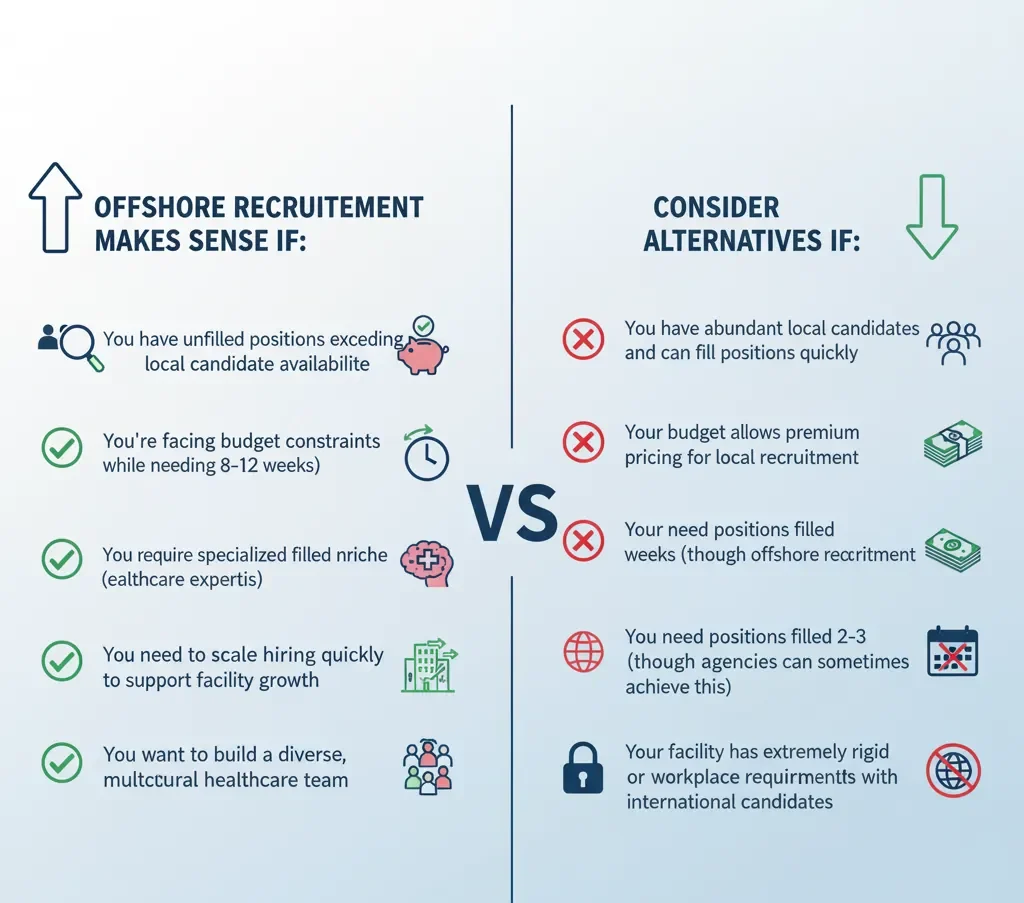
Making the Decision: Is Healthcare Offshore Recruitment Right for Your Organization?
Offshore Recruitment Makes Sense If:
- You have unfilled positions exceeding local candidate availability
- You’re facing budget constraints while needing to hire
- You need positions filled urgently (within 8-12 weeks)
- You require specialized or niche healthcare expertise
- You need to scale hiring quickly to support facility growth
- You want to build a diverse, multicultural healthcare team
Consider Alternatives If:
- You have abundant local candidates and can fill positions quickly
- Your budget allows premium pricing for local recruitment
- You need positions filled within 2-3 weeks (though offshore agencies can sometimes achieve this)
- Your facility has extremely rigid cultural or workplace requirements incompatible with international candidates
- You lack HR infrastructure to support international employee management
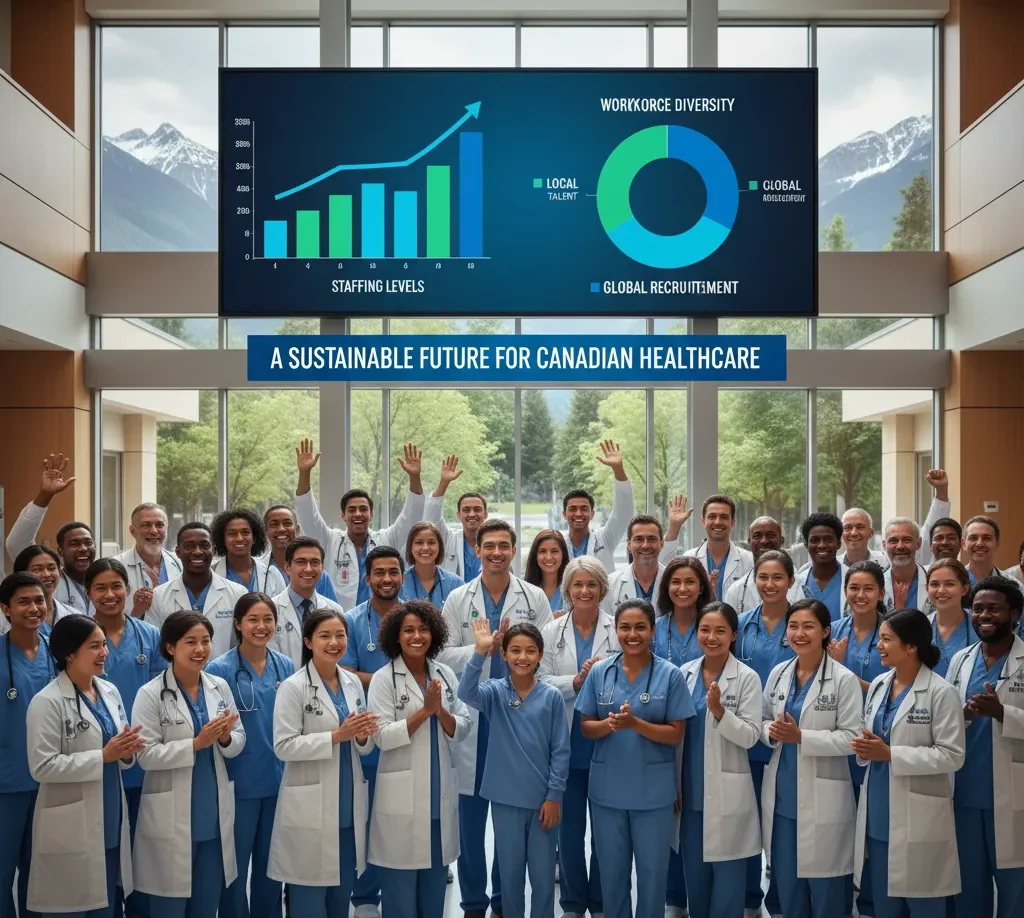
Conclusion: Offshore Recruitment as Canada's Healthcare Solution
Canada’s healthcare staffing crisis is real, urgent, and demands creative solutions. Healthcare offshore recruitment represents a proven, effective strategy that:
- Dramatically reduces recruitment and labor costs (30-70% savings)
- Accelerates hiring timelines from months to weeks
- Expands access to global healthcare talent pools
- Reduces HR burden through outsourced recruitment expertise
- Enables scalability and operational flexibility
- Improves workplace diversity and patient care quality
- Supports government immigration priorities for healthcare workers
- Maintains quality standards through rigorous vetting and verification
For Canadian healthcare facilities—from small rural clinics to large metropolitan hospital networks— offshore recruitment is no longer a fringe strategy. It’s a mainstream, government-supported, increasingly essential approach to building sustainable healthcare workforces.
As Canada’s healthcare system faces mounting pressure from an aging population, healthcare worker burnout, and limited domestic workforce growth, offshore recruitment will increasingly become the difference between healthcare facilities that can staff adequately and those that cannot.
The question is not whether to consider offshore recruitment—it’s how quickly your organization can implement it as part of your comprehensive talent acquisition strategy.
Next Steps:
If your Canadian healthcare facility is facing staffing challenges, consider these next steps:
- Assess your immediate hiring needs and timelines
- Evaluate your budget for recruitment spending
- Research offshore recruitment agencies specializing in healthcare
- Request proposals from 2-3 agencies with healthcare specialization
- Check references with other Canadian healthcare facilities using their services
- Understand provincial requirements for your specific healthcare roles
- Schedule consultations with top agency candidates
- Develop implementation timeline for your first offshore recruitment effort
- Pilot with a single position before committing to larger recruitment initiatives
- Monitor outcomes including retention, performance, and integration success
Healthcare offshore recruitment isn’t a perfect solution to every staffing challenge. But for Canadian healthcare facilities struggling to find qualified professionals in increasingly tight local markets, it represents a compelling, practical strategy for building the sustainable, diverse, highly-skilled healthcare workforce that Canadian patients deserve.
Frequently Asked Questions (FAQs)
Typically 8-16 weeks. Candidate identification and screening take 2-4 weeks. Interviews and selection take 1-2 weeks. Immigration processing and credential recognition take 4-8 weeks. Final onboarding takes 1-2 weeks. Timeline varies by province and individual circumstances.
Nursing positions (RNs, RPNs, LPNs, care aids) fill fastest. Medical technologists and lab technicians are also readily available. Administrative healthcare roles follow. Most challenging are specialized surgical roles requiring extensive Canadian experience.
Typically yes, depending on role and province. Nurses usually complete provincial registration processes. Doctors require medical licensing exams. Technologists may require credential recognition. Professional agencies handle this process, though timelines and requirements vary by province and specific credentials.
Entry-level nursing positions often cost 30-50% less. Senior positions may see smaller differentials of 10-30%. Cost savings vary by role, facility location, and whether candidates are permanent residents versus work permit holders. Offshore agencies can provide specific cost comparisons for your region.
Absolutely. Rural facilities often face the greatest recruitment challenges and benefit most from offshore recruitment. Offshore agencies are experienced working with facilities of all sizes and can handle single-position placements.
Reputable offshore agencies typically provide replacement guarantees—they'll source and present replacement candidates if the initial hire doesn't succeed. Review agency contracts for specific replacement policies and guarantees.
Regulations and requirements vary by province. Quebec has specific language (French) requirements. Some provinces have more streamlined credential recognition. Experienced offshore agencies understand provincial variations and can advise on which provinces have easier processes.
Yes. Offshore agencies can arrange temporary placements, contract workers, or temporary-to-permanent positions. This flexibility is valuable for seasonal volume fluctuations or project-specific needs.
-
 AI-Driven SEO Tools and Services:Boosting Rankings with AI
AI-Driven SEO Tools and Services:Boosting Rankings with AI -
 Best Manufacturing Employment Agencies In USA
Best Manufacturing Employment Agencies In USA -
 Best Technical Search Engine Optimization Agencies in USA
Best Technical Search Engine Optimization Agencies in USA -
 Best Email Marketing Services in USA 2025
Best Email Marketing Services in USA 2025 -
 Best AI-Driven Digital Marketing in USA 2025
Best AI-Driven Digital Marketing in USA 2025 -
 Best Social Media Marketing Services in New York 2025
Best Social Media Marketing Services in New York 2025 -
 Best Digital Marketing Services in New York 2025
Best Digital Marketing Services in New York 2025 -
 Best Digital Marketing Services in Boston 2025
Best Digital Marketing Services in Boston 2025 -
 Best SEO Services in Boston 2025
Best SEO Services in Boston 2025 -
 Best Social Media Marketing Services in UAE
Best Social Media Marketing Services in UAE -
 Best Website Development Services in Dubai
Best Website Development Services in Dubai -
 Best Performance Marketing Services in Dubai
Best Performance Marketing Services in Dubai -
 Best SEO Services in Dubai
Best SEO Services in Dubai -
 Best Social Media Marketing Services in Dubai
Best Social Media Marketing Services in Dubai -
 Best Digital Marketing Services in Dubai
Best Digital Marketing Services in Dubai -
 Best Performance Marketing Services in Australia
Best Performance Marketing Services in Australia -
 Best Content Writing Services in Thailand
Best Content Writing Services in Thailand -
 Best Performance Marketing Services in Thailand
Best Performance Marketing Services in Thailand -
 Best SEO services in Thailand
Best SEO services in Thailand -
 Best Mobile App Development Services in Thailand
Best Mobile App Development Services in Thailand -
 Best Website Development Services in Thailand
Best Website Development Services in Thailand -
 Best Social Media Marketing Services in Thailand
Best Social Media Marketing Services in Thailand -
 Best Digital Marketing Services In Thailand
Best Digital Marketing Services In Thailand -
 Best Social Media Strategies in 2025 for Business Growth
Best Social Media Strategies in 2025 for Business Growth -
 Best Mobile App Development Services In Australia
Best Mobile App Development Services In Australia -
 Best Google Ads Services in Australia
Best Google Ads Services in Australia -
 Best SEO (Search Engine Optimization) services in Australia 2025
Best SEO (Search Engine Optimization) services in Australia 2025 -
 Best Email Marketing Services in Australia
Best Email Marketing Services in Australia -
 Best Graphic Design Services in Australia
Best Graphic Design Services in Australia -
 Top Content Writing Services in Australia
Top Content Writing Services in Australia -
 Top Social Media Marketing Services in Australia
Top Social Media Marketing Services in Australia -
 Best Digital Marketing Services in Australia
Best Digital Marketing Services in Australia -
 Best Website Development Services in Australia
Best Website Development Services in Australia
Also Read
Book a Free Consultation
Ready to elevate your customer experience? Don’t settle for ordinary support. Our dedicated consultants are standing by to match your enterprise with the highest-caliber customer service executives in the USA. From virtual assistants to specialized account managers, we have the expertise and talent pool to meet your needs.
Contact our team today to discuss how our tailored customer executive services can transform your support operations. Let us help you hire or outsource the best customer service executives in USA, so you can focus on growing your business with confidence. Together, we will build a world-class customer support team that drives loyalty and success.
